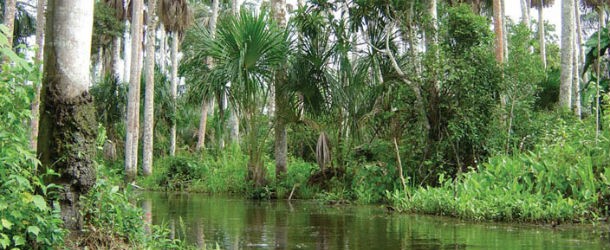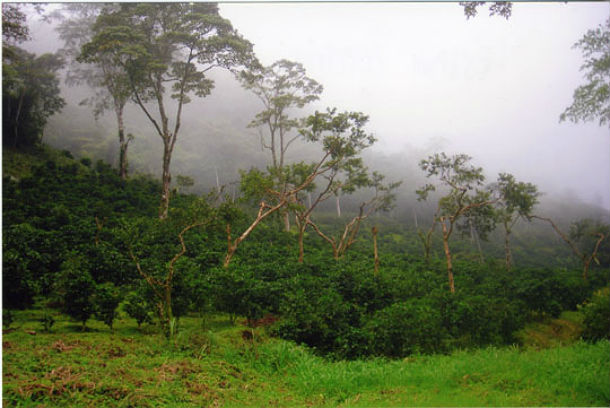Nicaraguan rainforest under threat from growing illegal logging and agricultural frontier

Leaders of Nicaraguan indigenous Mayangna and Miskito people warned that a rainforest in Nicaragua is under growing threat from illegal logging by landless people who have invaded the area. Indigenous tribes hold the title to the land of which 75,000 acres a year are being deforested by the invaders. According to Arisio Genaro, president of the Nacion Mayangna, the parts of territory that have been zoned to be conservation forest, are being invaded by settlers, a trend that poses a serious threat to the future of the forest.
The Bosawas Biosphere Reserve on the border of Nicaragua and Honduras is a the largest Central America’s tropical rainforest. The area is renowned for its rich biodiversity and numerous rare or endangered species. At approximately 2 million hectares in size, the reserve comprises about 15% of the nation’s total land area making it the second largest rainforest in the Western Hemisphere, after the Amazon in Brazil. Together with three neighbouring protected areas of Honduras ‘Río Patuca’ National Park, ‘Tawhaka’ Anthropological Reserve, and ‘Río Plátano’ Biosphere Reserve, it constitutes the so-called ‘Heart of the Mesoamerican Biocorridor’, representing the largest protected area complex of tropical mountain moist forest north of the Amazon basin.
This territory is also the home of the indigenous Mayangna, or Sumu people. They have developed an intricate and extensive knowledge of the local flora and fauna and have shaped the biological system through their cultural practices. The Nicaraguan government recognised the full legal title of the Mayangna to their lands in 2007. Today, this territory is under threat by a rapidly advancing agricultural frontier, increasing contamination of watercourses originating outside the reserve. According to UNESCO, there are more than 130,000 inhabitants (1998), mostly farmers, who live in the extensive agricultural frontier areas.

The agricultural frontier inside the Bosawas Bioreserve. (Credit: University of California, Berkeley)
But the most concerning is illegal logging. Indigenous people warned that land speculators come in, burn the forest and put in pasture, then sell it and move to another area.
“We are losing land, and we are losing our cultural values. We are very worried. We believe that if there is no intervention, there will be no Biosphere reserve in five to 10 years” Taymond Robins, Mayangna and organiser of the defence of the forests
Jinotega area has experienced local climate changes as a result of massive deforestation occurring eastward. Rivers are reported to transform into small streams and water shortages in community are reported. They described shortages of water.
Sources: Berkeley University, UNESCO, BBC
Featured image credit: Picsfrom.com

Commenting rules and guidelines
We value the thoughts and opinions of our readers and welcome healthy discussions on our website. In order to maintain a respectful and positive community, we ask that all commenters follow these rules:
We reserve the right to remove any comments that violate these rules. By commenting on our website, you agree to abide by these guidelines. Thank you for helping to create a positive and welcoming environment for all.